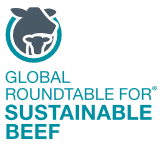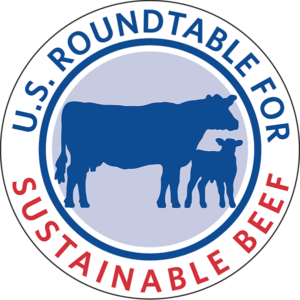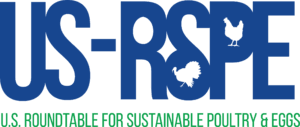Who We Are
Our Key Topics
Product Integrity
Team Member Health and Safety
Animal Welfare
Water
Energy and Climate Change
Our Approach
In 2015, we performed an extensive Corporate Materiality Analysis (CMA) that identified the material issues for our business. This analysis, while inclusive of JBS USA’s internal perception of the company’s sustainability performance, relied heavily on the views and perceptions of outside stakeholders, including Non-Governmental Organizations (NGOs), community organizations, key customers, suppliers, financial institutions, government officials, academia, industry trade associations and other industry stakeholders. The material issues identified through this consultation process defines our key priority areas, five-year goals and reported annual performance.
In 2020, we hired external consultants to revisit our CMA in order to understand how the expectations of our key stakeholders may have shifted due to events such as COVID-19 and groundswells of support against racial injustice. Through surveys and in-depth interviews, stakeholders from around the world and across our supply chain provided insights that confirmed our efforts in key areas. The stakeholder feedback provided helps guide our current strategy and informed our goals for 2030 and beyond.
Additionally, the JBS USA Ethics Line is used for employee consultation and we also continuously gather feedback around our material issues from internal and external stakeholders through one-on-one conversations with customers, consumers, team members, subject matter experts, external stakeholders and involvement in cross-collaborative supply chain sustainability initiatives. This feedback helps inform our process. Progress to goals and annual performance are summarized and annually reported by our Chief Sustainability Officer (CSO) to the Independent Advisory Board for additional feedback and guidance. Stakeholders are also involved in the development of this report.
To fully integrate our key priority areas, as identified by our CMA, across JBS USA business units, we defined and benchmarked approximately 30 Key Performance Indicators (KPIs) based on performance data for 2013, 2014 and 2015, across more than 60 facilities in the U.S. and Canada. Each facility was then tasked with identifying data-informed 2020 improvement goals and an implementation plan by which to achieve these goals. Based on the cumulative facility improvement goals, each JBS USA business unit developed reduction targets that were agreed to by the executive team, including the CEO and business unit Presidents, and then aggregated to form aggressive JBS USA 2020 improvement goals.
Building our sustainability goals from the ground up ensures ownership at the facility level, oversight at the business unit level and consistency in approach across the JBS USA enterprise. We are confident that developing a program that is supported by team members from the front-line to executive leadership will result in meaningful and measurable change that will drive continuous improvement throughout our company, meet our stakeholders’ expectations and allow us to create the greatest societal benefit.
Given the scale and diversity of our operations and the unique supply chain challenges faced by each of our business units, JBS USA’s initial approach to sustainability was regionally focused. We are now excited to announce our globally aligned 2030 improvement goals.
Our Management Approach
Our sustainability program is managed by the Corporate Sustainability Department in each region. Direct responsibility for decision making on the economic, social and environmental sustainability topics reside with the Head of Corporate Affairs and Chief Sustainability Officer (CSO), who reports directly to the CEO. Our Independent Advisory Board discusses and advises the JBS USA executive team on policies, procedures, impacts, risks and opportunities in addressing economic, environmental and social topics. The Independent Advisory Board reviews, at least annually, our policies, activities, and reporting regarding sustainability, and discusses our management of risks in those areas. The Corporate Sustainability Department in each region reports to the president of the business unit or directly to the CSO. These corporate sustainability teams partner with subject matter experts on our corporate environmental, team member health and safety, animal welfare and food safety, and quality assurance teams who support facility level leaders and work in partnership to improve our sustainability performance on the ground.
Our Sustainability Team

Cameron Bruett
Head of Corporate Affairs and CSO, JBS USA

Madison Boyd
Director of ESG, JBS USA

Jessica Langley
Director of Sustainability, JBS USA & Pilgrim's US

Mark Ritsema
Head of Environmental Sustainability, JBS USA

Leon Felipe Moya Daumas
Institutional Affairs Manager, Pilgrim's Mexico

Declan Cunningham
Head of Sustainability and Risk Management, Pilgrim's Moy Park

Matt Dight
Head of Sustainability, Pilgrim’s UK

Sam Churchill
Group Manager Sustainability, JBS Australia
Rob Meijer
Head of Business Development, Marketing and Sustainability, JBS Canada
Collaboration for a Better Future
The broad-based, industry-wide issues facing North American, European and Australian agriculture today require full value chain collaboration to identify sustainable approaches that prioritize continuous improvement. As such, we are active members of many industry-based associations, some of our partners include:
- American Association of Avian Pathologists
- American Association of Swine Veterinarians
- American College of Poultry Veterinarians
- American Fats and Oils Association
- American Feed Industry Association
- American Meat Science Association
- American Society of Animal Science
- American Veterinarian Medical Association
- Asociación de Industriales de Puerto Rico
- Association of National Advertisers
- Australian Beef Sustainability Framework
- Australian Environmental Business Network
- Australian Food and Grocery Council
- Australian Lot Feeders’ Association
- Australian Meat Industry Council
- Australian Meat Processor Corporation
- Australian Pork Limited
- Beef Industry Food Safety Council
- British Frozen Food Federation
- British Poultry Council
- Campden BRI Food and Drink Initiative
- Canadian Cattlemen’s Association
- Canadian Meat Council
- Canadian Renderers Association
- Canadian Roundtable for Sustainable Beef
- Cattle Council of Australia
- Celaya Poultry Association
- Chilled Food Association
- Colorado Motor Carrier Association
- European Federation for Beef and Pork Meat
- Fats and Protein Research Foundation
- Food Network for Ethical Trade
- Food Safety Preventative Controls Alliance
- French Meat Federation
- French Meat Interprofessional Federation
- French Poultry Federation
- Global Food Safety Initiative
- Global Roundtable for Sustainable Beef
- Institute of Food Technologists
- Institute of Livestock or INRA (French National Institute of Agricultural Research)
- International Consortium for Antimicrobial Stewardship in Agriculture
- International Meat Trade Association
- Meat and Livestock Australia
- National Association of TIF Establishments
- National Cattlemen’s Beef Association
- National Chicken Council
- National Pork Board
- National Pork Producers Council
- National Poultry and Food Distributors Association
- National Renderers Association
- North American Meat Institute
- Northern Ireland Food and Drink Association
- Northern Ireland Food Chain Certification
- Northern Ireland Poultry Federation
- Nuevo Leon Poultry Farmers Association
- Organic Farmers and Growers
- Organic Trade Association
- Pet Food Alliance
- Poultry Science Association
- Red Tractor
- Research Chefs Association
- SmartWay, U.S. Environmental Protection Agency
- Soy Transparency Coalition
- Sustainable Agriculture Initiative Platform
- Trucking Industry Defense Association
- U.S. Meat Export Federation
- U.S. Poultry and Egg Association
- U.S. Roundtable for Sustainable Beef
- U.S. Roundtable for Sustainable Poultry and Eggs
- UK Roundtable on Responsible Soya
- Union of Poultry Farmers of the State of Querétaro
- United Poultry Farmers of the State of Guanajuato AC
- USA Poultry and Egg Export Council
JBS USA holds leadership roles in a number of multi-stakeholder partnerships dedicated to responsibly addressing sustainability to advance continuous improvement through the supply chain.





